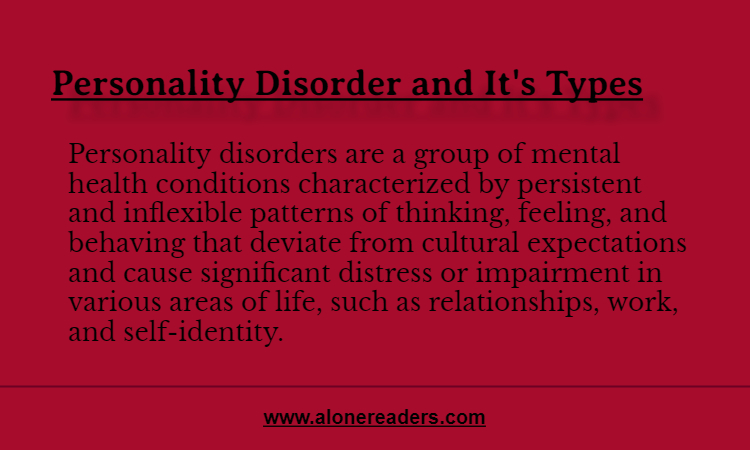
Personality disorders are a group of mental health conditions characterized by persistent and inflexible patterns of thinking, feeling, and behaving that deviate from cultural expectations and cause significant distress or impairment in various areas of life, such as relationships, work, and self-identity.
These disorders typically emerge in adolescence or early adulthood and tend to be chronic in nature. They affect the way individuals perceive and interpret themselves, others, and the world around them. People with personality disorders often have difficulty adapting their behavior to different situations, which can lead to problems in social interactions and emotional functioning.
There are several types of personality disorders, each with its own specific patterns of behavior and symptoms. The Diagnostic and Statistical Manual of Mental Disorders, Fifth Edition (DSM-5), which is a widely used diagnostic manual, identifies ten distinct personality disorders, grouped into three clusters:
Cluster A (odd or eccentric disorders):
Cluster B (dramatic, emotional, or erratic disorders):
Cluster C (anxious or fearful disorders):
It's important to note that the diagnosis and treatment of personality disorders should be conducted by qualified mental health professionals. Effective treatment may involve psychotherapy, medication for co-occurring symptoms, and support from a therapeutic community.